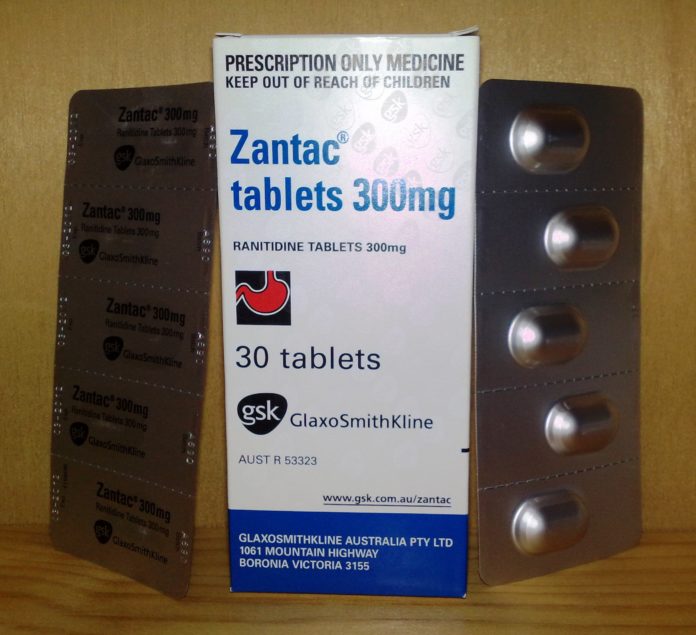CVS, Walgreens and Rite Aid are pulling Zantac and the generic form of the popular heartburn medication from pharmacy shelves over growing concerns that the products may contain small levels of nitrosodimethylamine (NDMA), a possible cancer-causing chemical linked to liver damage.
CVS said Saturday it was suspending sales “out of an abundance of caution.” A spokesman for Walgreens said Monday that the pharmacy would remove brand name Zantac and generic forms of the drug “while the FDA continues its review of products.” Rite Aid is in the process of removing the drugs from its shelves, the company said in a statement.
“Rite Aid takes customer safety very seriously,” the statement said.
The decision by the pharmacy giants adds to a flurry of worldwide concern about the drug. Major manufacturers of the generic form, ranitidine, have announced recalls, and other countries have requested that companies halt distribution of the drug or issued recalls. The U.S. Food and Drug Administration has been investigating the possible risk to patients, as well.
Not all versions of ranitidine have been recalled, and the FDA has stopped short of calling for people to stop taking drug that remains on the market. But the agency has advised patients who wish to stop taking ranitidine to talk to their doctors about alternatives for the anti-heartburn medication that’s commonly used in prescription and over-the-counter medicines to treat issues like ulcers and acid reflux.
Exposure to low levels of NDMA does not pose an acute risk to patients. The chemical is classified as a probable carcinogen and is an environmental contaminant, and it can be found in food, such as grilled meat.
Sandoz, a division of the pharmaceutical giant Novartis, halted distribution of ranitidine in mid-September and then announced it was recalling lots after the impurity was detected above acceptable levels last week. Apotex Corp., another manufacturer, recalled ranitidine tablets last week on a “precautionary basis” after learning from the FDA and other global regulators that the drug can contain the impurity, regardless of the manufacturer. Drug recalls are typically executed by the individual manufacturers and subsequently announced by the FDA.
The FDA has been asking companies to test the levels of NDMA in their drugs and send samples to the agency.
“The agency is working with international regulators and industry partners to determine the source of this impurity in ranitidine. We are also working to understand what happens to NDMA levels in the body after administration of ranitidine,” FDA spokesman Jeremy Kahn said. “The FDA will take appropriate measures based on the results of the ongoing investigation.”
Problems with ranitidine were first flagged in June by Valisure, an online pharmacy that analyzes drugs to verify their chemical contents before sending them to consumers. Valisure chief executive David Light said that his company analyzed ranitidine in part because a co-founder of the company had an infant daughter who was taking the drug for acid reflux. He said they were disturbed to find the carcinogen present in multiple formulations of ranitidine.AD
“We feel that there should be a complete recall. This should be taken off the market, period, regardless of manufacturer,” Light said.
Sanofi, the pharmaceutical company that manufactures ranitidine under the Zantac trade name, has not recalled its drug.
“The FDA reported that the levels of N-nitrosodimethylamine (NDMA) in ranitidine in preliminary tests barely exceed amounts found in common foods,” Ashleigh Koss, a spokeswoman for Sanofi, told The Washington Post via email. “We are working closely with the FDA and are conducting our own robust investigations to ensure we continue to meet the highest quality safety and quality standards. At Sanofi, we remain committed to being transparent with our patients and consumers and will share an update when one is available.”
Companies fail to use social media to warn of dangerous recalls, report finds
Regulators in other countries have already taken action. Canada has requested that companies stop distributing ranitidine products, and France has recalled them. GlaxoSmithKline has recalled its ranitidine products in India and Hong Kong, according to USA Today (GlaxoSmithKline does not sell ranitidine products in the United States).
